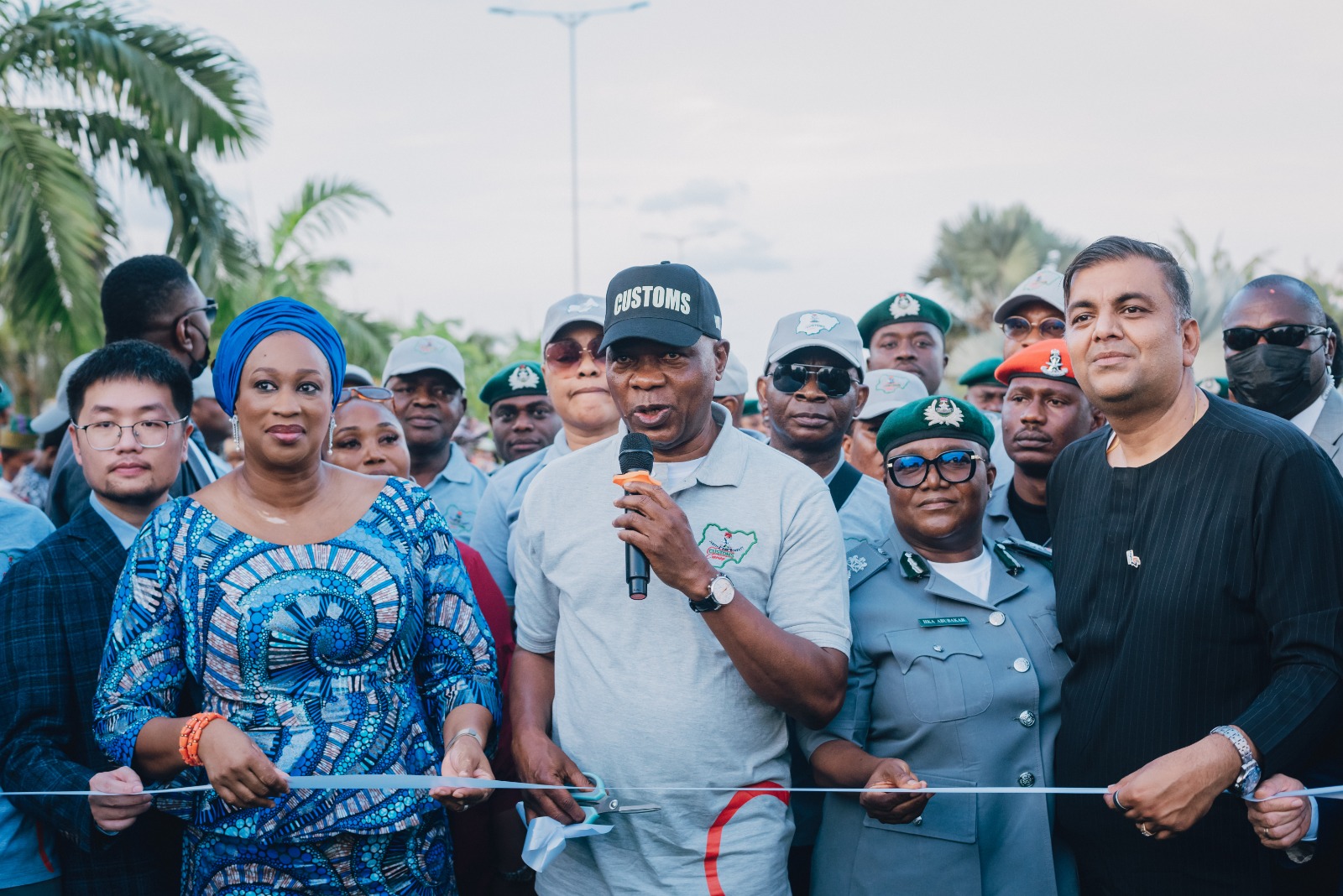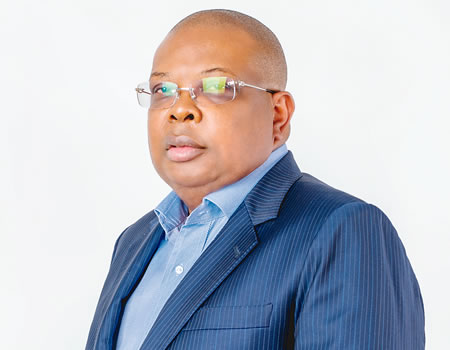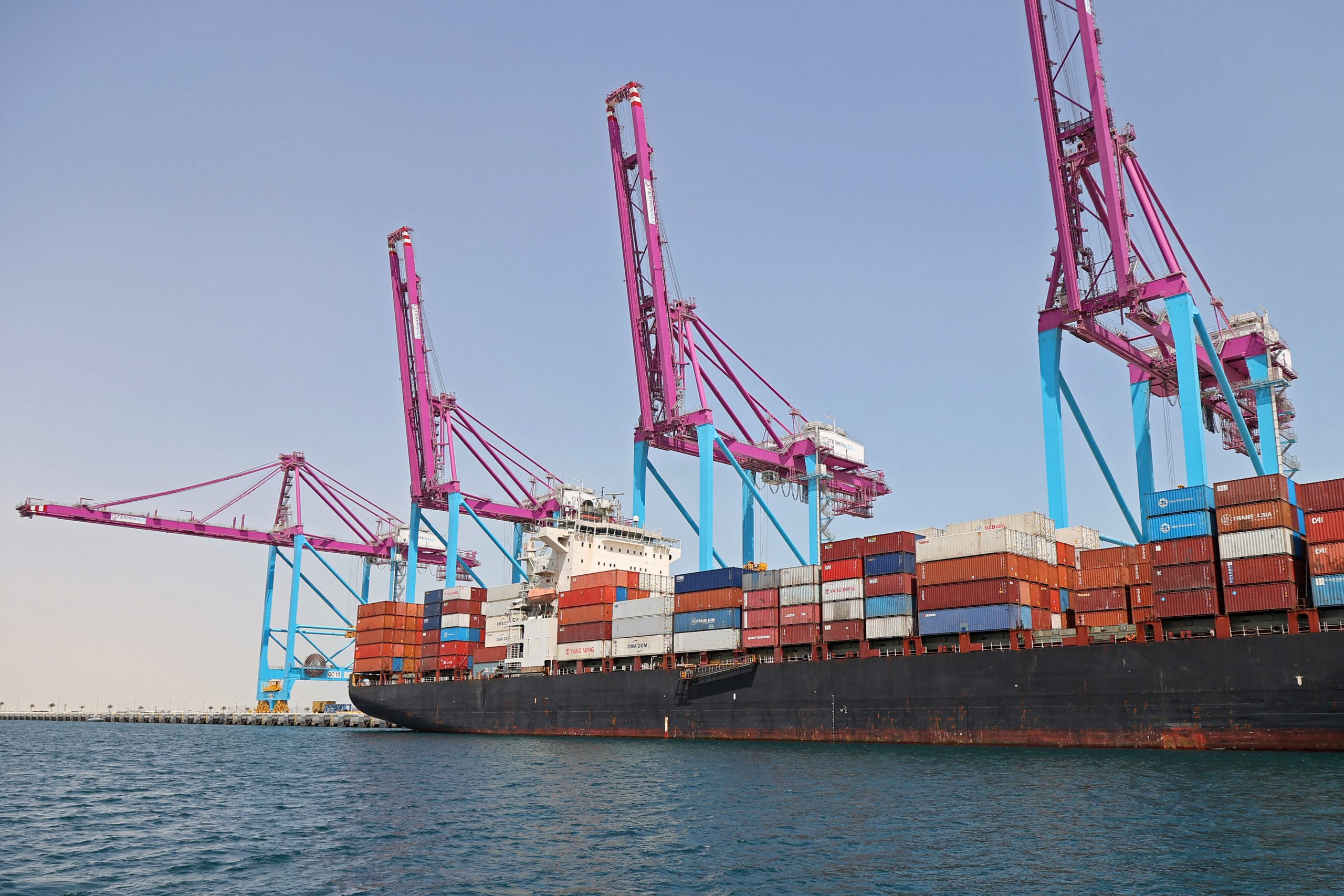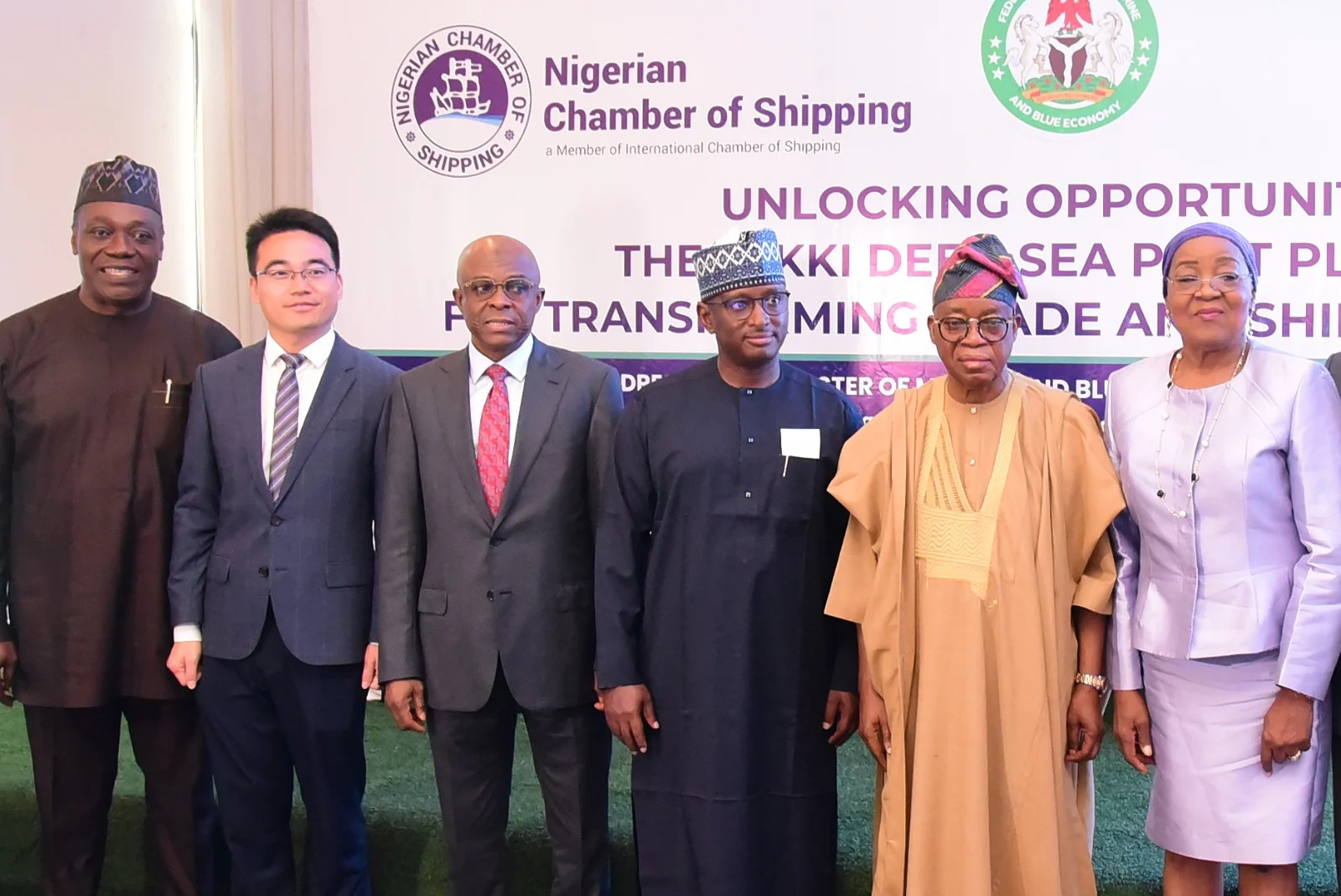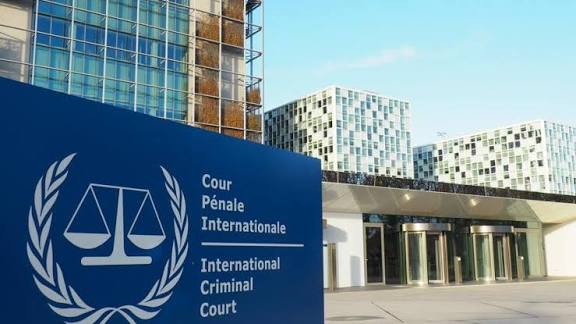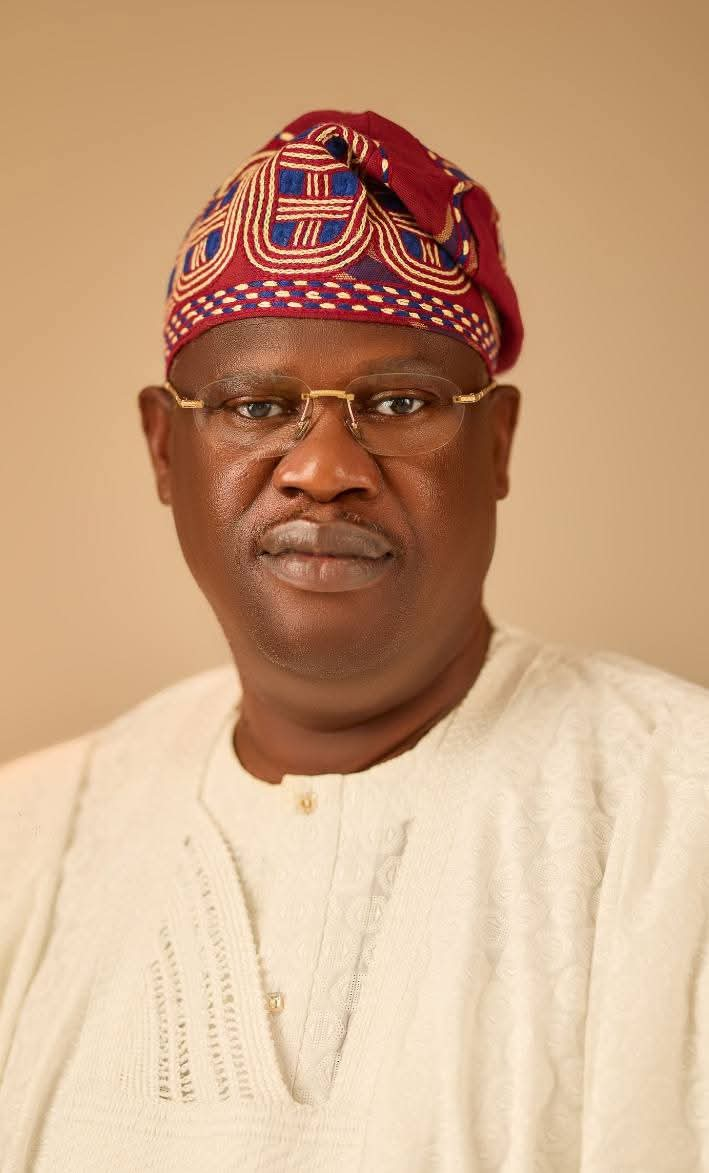Oyebamiji, NIWA And Blue Economy
ABIODUN KOMOLAFE
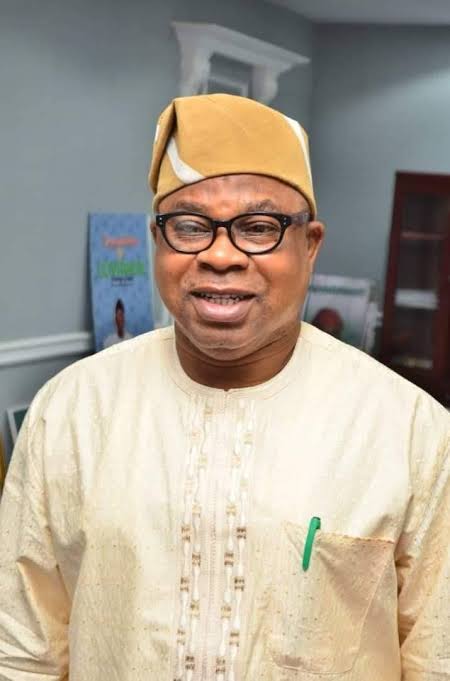
From the track records of Munirudeen Bola Oyebamiji, his appointment into the hitherto moribund National Inland Waterways Authority (NIWA) as its Managing Director/Chief Executive Officer (MD/CEO) is well deserved. Given his pedigree, experience and previous positions, expectations are high that Oyebamiji’s good leadership style will ultimately impact inland waterways in a way as to make Marine and Blue Economy relevant and fulfill its mandate.
In the past, not much has been heard about NIWA as it has just been job-for-the-boys kind of establishment. But now that a technocrat, famously called Bola Oyebamiji, has been put in the saddle, it’s believed that there will be a major turnaround in the inland water transportation sector; and, since the focus of the Bola Tinubu-led administration is restructuring to boost revenue, it’s also believed that the Ikire, Osun State-born banker, economist, public administrator and politician will make a mark in his new assignment.
No doubt about it, Nigeria is in economic dire straits and all eyes can see it! Therefore, the strategic position in an agency or department that can help to diversify the country’s economy and boost productivity and revenue in the short and medium term is vital. If we had known what we’re doing, inland waters, like the Marine and Blue Economy, should have been a driving force of the economy. The two of them should be worth trillions of naira annually in terms of output and be responsible, directly and indirectly, for five to six hundred thousand employment opportunities, with almost all of them captured in the taxpaying scheme.
In the First Republic, the Nigerian Ports Authority (NPA) contributed circa 42% of the Federal Government’s revenue; and that was under the legendary F.S. McEwen, a brilliant technocrat from Warri in today’s Delta State. As a matter of fact, NPA was the Nigeria National Petroleum Corporation (NNPC) of that era. In today’s globalized world, international trade as well as internal trade mechanisms must once again be the propelling mechanism for the economy as a whole.
It also needs to be noted that Nigeria’s navigable rivers are grotesquely untapped. Well, this is not surprising, especially since the political economy is based on rent-seeking, prebendal politics, corruption and poor service delivery, not productivity-fired value-addition. Under normal circumstances, the territorial waters can provide immense services in terms of moving cargoes and passengers, thereby saving the country from constantly repairing roads. It can also generate a lot of employment with the development of internal ports which will become bases of production activities such as light manufacturing and commodity exchanges, which are vital as price modulating frameworks, especially in a country battling unprecedented 40% food inflation.
Yes, the national inland waterways ought to be the vineyard for a N4 trillion economy, which is an unambitious, deliberately conservative target, for the multiplier effect of well-structured developed internal waterways is massive. It is our belief that Oyebamiji as a seasoned technocrat has the captivating managerial capability to drive such a process in tandem with the Honourable Minister of the Blue Economy, H.E. Gboyega Oyetola, and reflecting Tinubu’s desire to diversify the economy and its operating modules from consumption to a productive, increasingly export-oriented, internationally competitive economy. The neglect of the inland waterway system is a clear indication of the way we have lost our way and the president should be given an ovation for creating a Ministry of Marine and Blue Economy and characteristically finding an astute technocrat such as Oyebamiji to be the driver of the reinvigorating process. If, as expected, Oyebamiji delivers on his mandate, the benefits will be unquantifiable.
In the considered opinion of yours sincerely, the Asiwaju of Ikireland should outline a private sector-led framework for the inland waterways – if he has not already done so – by detailing the immense untapped benefits of the Blue Economy. The private sector will be awake to a new vista of investment opportunities and the well-above-the-average return on investment. This will also attract foreign investment capital as the world contradictorily is awash with capital looking for investment destinations. For example, ferry services for the movement of passengers and cargoes alone under a well-structured operating framework can bring in hundreds of millions of dollars of direct foreign investments.
At a time like this, the NIWA boss should call an investment summit – if he has not already done so – under the working title, ‘The Immense Possibilities of the Inland Waterways’, tying the private sector and international capital, insurers, professional services and banks. The possibilities are simply mouth-watering! The investment summit should not be a talk-shop of limited value. Instead, there must be strict timelines as to the achievements of defined performance targets. The aim must be production-led, job-creating, industry-stimulating, investment-attracting and revenue-generating inland waterways, and the key ingredient towards achieving a trillion dollar economy.
Birmingham is the 2nd largest city in England. But, in spite of its Spaghetti Junction, 60% of movement of passengers and goods in Birmingham is by canals. Coming back to Nigeria, there are more than fifteen hitherto untouched areas where Oyebamiji’s expertise can be applied to provide job opportunities for Nigeria’s teeming-yet-unemployed youths as well as generate revenue for the country. For example, there are internal waters that can be turned to commercial and/or transportation hubs. So, what prevents NIWA from dredging River Osun from Osogbo, through Ijebu-Jesa, to Esa-Odo? If internal waterways can reach remote areas, promoting trade and development in Nigeria, what stops NIWA from dredging Sokoto River, to get to Bakura in Zamfara State, ending with a light port? Beyond the fact that it is safer, cheaper, efficient and less polluting by sea or water, what that means in economic terms cannot be quantified.
The development of River Osun alone will help create jobs; and jobs create revenue. Added to this is that the damage incessantly done to our roads will be drastically reduced! Of course, River Osun is just one out of the only-God-knows-how-many Rivers in Nigeria. Tragically, Nigerians are not exploiting this opportunity because everybody is too fixated on oil rubbish which, pathetically, has continued to rubbish our fortunes as a nation and people! Even the oil that we are so much talking about can be moved by ferries! If these are possible, why destroy the roads?
For an economy to grow, determination is key! Refinement is also important! Former Governor Babatunde Raji Fashola of Lagos State understood these and Lagos State was better for it! For example, by banning night parties in Lagos, the state accessed a sudden boom in the hospitality business, ranging from event centres, to ushering and ancillary services. Even clothing, fashion and footwear retailers were not left out as everybody would want to look good during the day. To this end, NIWA must work determinedly to support recreational and related critical activities that can aid economic development, trade and sustainability. For optimal success, it is also expected that Oyebamiji and Oyetola as the Supervising Minister would enjoy excellent unity, more so as either by choice or divine design, the two great technocrats are from the same state. A road to the contrary will be a big opportunity gone wrong and … a beautiful disaster!
Oyebamiji has started on the right foot and the can-do technocrat should put himself at the end of his shift among the greats such as McEwen. If he does so, the economy will be better off and, his place in history, assured.
It is in all our interests as stakeholders to wish the Balogun Musulimi of Irewole, Isokan and Ayedaade the very best!
May the Lamb of God, who takes away the sin of the world, grant us peace in Nigeria!
*KOMOLAFE wrote in from Ijebu-Jesa, Osun State, Nigeria (ijebujesa@yahoo.co.uk)*



